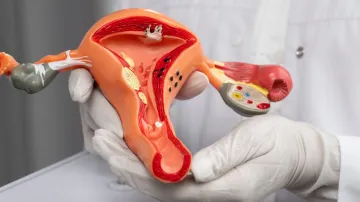Uterine fibroids also known as leiomyomas are non-cancerous growths in the uterus that affect many women during their reproductive years. While fibroids themselves are generally not harmful/dangerous, their presence sometimes can pose multiple challenges during pregnancy. According to Prerna Sinha, Associate Consultant, Obstetrics and Gynaecology, Madhukar Rainbow Children’s Hospital, Delhi, There have been many cases where fibroids often go unnoticed, as the growths are too small to cause noticeable complications. However, larger fibroids may affect conception, fetal development, or delivery.
The most common symptoms of fibroids during pregnancy include:
- Severe cramps, akin to menstruation.
- Pain and discomfort in the stomach, Digestion problems, such as constipation
- Due to pressure on the bladder, there is a frequent urge to urinate
Complications during Pregnancy:
Increased estrogen levels during pregnancy may lead to fibroid development. Studies have also indicated that the most common complication of fibroids during pregnancy is pain, especially in women with fibroids larger than 5 centimetres who are in their last two trimesters. These may include miscarriage, preterm birth, fetal growth restriction, and placental abruption. Fibroids located near the fallopian tubes or within the uterine cavity can disrupt the implantation of a fertilized egg or interfere with embryo development, leading to difficulties in achieving pregnancy. The size, number, and location of fibroids within the uterus can influence the possibility of these complications.
During labour and delivery, uterine fibroids can contribute to complications such as obstructed and prolonged labour, and an increased likelihood of requiring a C-section. The presence of fibroids can distort the shape of the uterus or obstruct the birth canal.
Pregnant women with uterine fibroids require specialised prenatal care to monitor for potential complications throughout pregnancy. However, if fibroids significantly impact pregnancy outcomes or pose a risk to maternal or fetal health, surgical intervention may be necessary. Some prescribed medications can help alleviate the symptoms associated with fibroids.
Remember, expectant mothers with fibroids should consult a doctor to optimise prenatal care and guarantee the best potential results for both themselves and their newborns.
ALSO READ: Bloated stomach of UK woman misdiagnosed as pregnancy, turns out with ovarian cancer later

